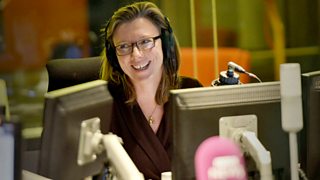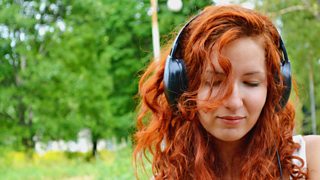Are you taking sleep seriously enough?
Sleep is a pastime that every human on the planet indulges in; an activity that brings almost incalculable benefits for our health and happiness, yet costs nothing – or at least, didn’t until recently. Yet increasingly, it's one of the first things we sacrifice when it comes to earning a living, socialising or even just watching a new boxset.
In a keynote address at the Free Thinking Festival 2017, Professor Russell Foster argues that the 36% of our lives we spend unconscious is some of the most valuable time we have. So why aren’t we taking it seriously?
The assumption: “Life is for living: we can sleep when we’re dead.”
The reality: You might look useless while you’re snoozing, but sleep isn’t dead time. As we sleep, our bodies are hard at work repairing themselves, rebuilding metabolic pathways, removing waste products and rebuilding energy reserves.
Thomas Edison, inventor of the lightbulb, described sleep as a “criminal waste of time”
Meanwhile, our brains are taking advantage of the lull in new sensory information to work overtime, processing social and emotional experiences and developing memories.
All of these functions are completely necessary for our waking lives. Without adequate sleep, our performance and physical and mental health deterioriate rapidly.
The assumption: “Modern technology means we can get by with less sleep.”
The reality: Ever since Thomas Edison patented his electric lightbulb in 1879, humans have become increasingly dependent on technology that allows them to work and play long into the night. Despite the obvious benefits that sleep has for our wellbeing, we’re somehow sleeping less than ever before.
Even people who don’t work night shifts are getting on average one to two hours less sleep each night than people did in the 1950s. And digitally native teenagers – who need nine hours of sleep every night for optimal performance – are sometimes scraping by on just five.

Edison, by the way, famously hated sleep – describing it as a “criminal waste of time” and a “heritage from our cave days”. Small wonder, then, that one of his most famous inventions (and the technologies that followed it) has been keeping us awake for over 100 years.
The assumption: “The world has changed: we just have to adapt.”
The reality: Technology isn’t just stopping us getting to bed on time; it’s interfering with physical processes that have evolved over millions of years.
We live on a planet that revolves once every 24 hours. This is such an accepted part of our lives that we hardly ever pause to reflect on how fundamentally it affects us and our behaviours. Yet almost all life on Earth – from single-cell organisms to human beings – has evolved a 24-hour long “circadian rhythm” of activity and rest.
Humans aren’t good at seeing in the dark, and we don’t have shaggy coats to keep us warm. So the most appropriate time for us to sleep has always been at night, when it’s dark, cooler and our usual sources of food are harder to find. That was true for cavemen, and it’s true for us now.
The assumption: “We can cheat our circadian rhythms by turning the lights on.”
The reality: We may use technology to extend daylight hours, but our bodies know the truth. The presence – or absence – of light is central to how we adjust to “local time”. That’s why we feel jetlagged when we’re transported to places where day and night fall at unexpected times, but recover when we’re exposed to the new dawn/dusk cycle.
Even visually blind people aren’t clock blind
This is true even for blind people. Healthy eyes detect light using rods and cones, but there’s an additional, third sensor in the eye that can detect light. About a hundreth of the ganglion cells in our optic nerves are light sensitive – so even visually blind people aren’t "clock blind".
This third light sensor also detects bright light, which increases our alertness. You know you’re not supposed to watch TV or play with your phone before bedtime: this is why. It’s not just the stimulation that keeps you awake – it’s a physical response to the detection of light. And the more alert you are at bedtime, the poorer the quality of your sleep.
The assumption: “There’s probably an app that can help with this.”
The reality: You may be able to download an app to help you get to bed on time, or one that will document the quality of your sleep. But these ancient patterns of activity and sleep are hardwired into us: they can’t be controlled by watches or smartphones.
Our circadian rhythms are masterminded by a master body clock that sits at the base of our brains; a structure in the anterior hypothalamus called the the “suprachiasmatic nuclei”, or SCN for short. If the SCN is damaged – for example, by an injury or tumour – these rhythms are disrupted, and our sleep/wake state can become fragmented, leading to all manner of health problems.
The assumption: “If I’m tired, I’ll sleep – regardless of the time of day.”
The reality: Our body clocks are hardwired to resist any sleep pressure that builds up and encroaches on our daylight hours. That’s why people who work through the night can find it difficult to sleep during the day, even when they’re tired. Even if you do manage to drop off, quality of daytime sleep tends to be poor and can lead to impaired performance.

Many people who sleep badly sometimes reach for stimulants like caffeine to try and escape their sleep deficit. These work by blocking the receptors in the brain that detect sleep pressure, thus helping you to feel temporarily more awake. In actual fact, you don’t feel so much “more awake” as “less asleep”.
The assumption: “Sleep really isn’t that important.”
Given that sleep deprivation has proven links to attention lapses, inability to process information, loss of empathy, increased impulsivity, memory impairment, reduced cognition and creativity, compromised immunity, increased risk of infection, cancer, cardiovascular disease, diabetes II and metabolic syndrome, weight gain, mood instability, anxiety and depression, increased substance use and the general exacerbation of symptoms relating to psychiatric illness, could it be time to ask –
Are you taking your sleep seriously enough?
Leading neuroscientist Professor Russell Foster poses this question in The Free Thinking Lecture, marking the opening of this year's Free Thinking Festival on The Speed of Life. Listen live or online at the Radio 3 website and iPlayer Radio app. All programmes, clips and features from this year's festival can be found on the Free Thinking Festival season page.
-
![]()
Sleep: Freedom to think
Listen to Professor Russell Foster's fascinating opening lecture at the Free Thinking Festival 2017.
-
![]()
The Speed of Life
Browse all the programmes, clips and features from this year's Free Thinking Festival.
-
![]()
Why music can literally make us lose track of time
A simple online experiment shows how musical tempo can warp our ability to keep time
-
![]()
Understanding your body clock
Circadian rhythms are are found throughout the living world. How much do you know about yours?



